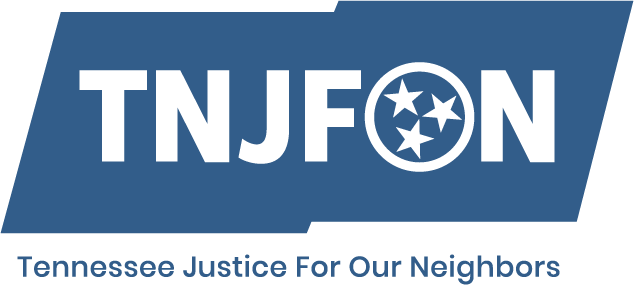The circumstances are different but the needs are the same.
By Sarah Head | YLC Board Intern
In August 2021, Kabul fell to the Taliban. After 20 years in Afghanistan, US forces were quickly pulling out of the country and a chaotic evacuation was in full effect. Many Afghans remembered life under the Taliban’s previous rule and were terrified. Those who worked with the US and other western governments feared retaliation. They knew they must get themselves and their families out.
“We’ve talked to so many people who say they literally just left their tea in the cups and ran for the airport.” Bethany Jackson, Legal Director of Tennessee Justice for Our Neighbors, shares what conversations are like with the many Afghan evacuees in need of legal aid.
Over a few chaotic weeks, Afghans fled their homes. They crossed Taliban checkpoints and attempted to make it through the terrified crowd surrounding the Kabul airport. Those with paperwork proving their work with the West, and who were lucky enough to make it on a plane, were evacuated to the United States. Overall, a total of 123,000 people were evacuated out of the country. Tens of thousands were left behind.
After a few months at a military installation where they first landed, Afghan evacuees began to make their way to Nashville in December 2021. For these individuals, the stressful, overwhelming evacuation -- leaving everything they know to come to an entirely new country -- was just the start of a long road ahead.
Resettlement agencies worked with the evacuees to help them find everything they needed, including housing, food, clothing, school, English classes and employment. With help from TNJFON, many have also begun the daunting process of applying for asylum.
Unlike a typical scenario in which the refugee establishes eligibility before arriving in the country, Afghans were admitted into the country under a temporary humanitarian basis. Now, the evacuees who are here must prove that they are eligible for asylum protection, a complicated process particularly for Afghans. “It’s complicated, and that’s why it’s important for people to have legal representation,” says Jackson.
The small but mighty three-lawyer team at TNJFON, in partnership with the Vanderbilt Immigration Practice Clinic, is working to meet this need for the almost 600 Afghans who have been settled in Nashville. TNJFON meets with each individual, evaluates their eligibility for asylum or other immigration relief, and matches them with a lawyer to assist with their case. So far, Jackson and her team have met with over 120 Afghan evacuees. Each story is as heartbreaking as the last.
“It’s not uncommon for us to meet with one family member who wasn’t able to get the rest of his family through the gate,” Jackson shares. For many Afghans in this situation, by the time they go through the entire asylum process, it could be years before their family is reunited in the US.
Despite the overwhelming work ahead, TNJFON is doing everything possible to help our Afghan neighbors. From expanding their legal team to increase caseload capacity to bringing in translators and community partners to more effectively provide aid, Jackson and her team are moving mountains.
This Wednesday, May 4, is The Big Payback in Nashville. Please consider donating to support the crucial work of Bethany Jackson and Tennessee Justice for Our Neighbors. Your donation helps the many Afghans in Nashville reunite their families and receive the much-needed asylum status.
Jackson closed with, “It’s hard for us to put ourselves in their situations, but really, our clients are just like us. They just want safe, stable lives for their families and opportunities for their kids to grow up and flourish. These people are us, just born in a different place. They have hopes and dreams for themselves and their kids.”

